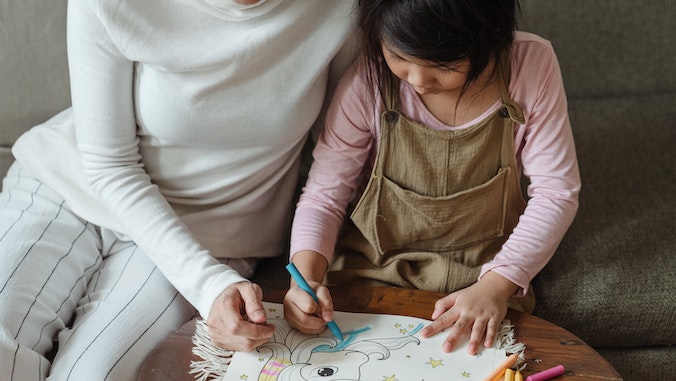
In an effort to meet Hawaiʻi‘s pressing need for more child welfare services workers, the University of Hawaiʻi at Mānoa is revitalizing a program that trains its master’s in social work students while paying for their tuition. The Hawaiʻi Child Welfare Education Collaboration (HCWEC), a partnership between the Thompson School of Social Work & Public Health and the Hawaiʻi State Department of Human Services (DHS), will cover tuition and other expenses for up to nine in-state students per year as they complete their degree. The program was paused in 2021 due to COVID-19-related cuts and restrictions.
Students who are accepted into the program must commit to post-graduation employment with DHS for 2–3 years within the Child Welfare Services Branch. They will work with children and their ʻohana and connect them to various resources.
“Social workers who work with children and families have a tough job, and there are high levels of burnout,” said HCWEC Director Francie Julien-Chinn, assistant professor in the Department of Social Work who has been working to restart the program in the fall. “HCWEC aims to change that by ensuring that students are not only fully prepared for their job responsibilities, but also really know what they’re getting into.”
Focus on practical experience
Throughout the program, students complete extra field hours and take specific electives that pertain to social work with children and families. They gain practical experience by helping connect families to resources, such as housing and food assistance, and helping parents to enroll in appropriate parenting classes, domestic violence support groups, or substance abuse programs.
Our goal is to build a trained, sustainable workforce for child welfare services in Hawaiʻi
—Francie Julien-Chinn
“Often, students in the program develop close relationships with others in their cohort,” said Julien-Chinn, who completed a similar program in Arizona as part of her social work training. “Because of the experiences they have while they are in the program, students really know how difficult the work will be and what their workload will be like. Our goal is to build a trained, sustainable workforce for child welfare services in Hawaiʻi.”
Rachel Thorburn, who completed the HCWEC program 15 years ago, works as an administrator in the Child Welfare Services Branch to develop new programs and policies for Hawaiʻi.
“Child welfare work is important and challenging,” Thorburn said. “Although there are certainly rough days and I have often struggled balancing all the demands, I have been happy and motivated to come to work every single day.”
The HCWEC program makes a positive difference for families in Hawaiʻi, she said.
Julien-Chinn added, “Difficulties such as high caseloads and challenging cases are likely to continue and we want to overcome the common problem of turnover that is seen in the child welfare workforce all over the U.S.”
Applications are now being accepted through July 30, 2022 for the fall 2022 cohort. For more information on the program, visit the HCWEC website.

